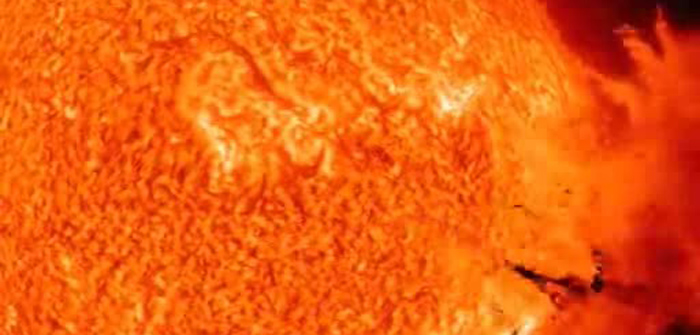Scientists at the University of Reading have found that forecasters could provide useful early warning to space infrastructure operators by calculating the speed of coronal mass ejections (CMEs) from the sun, when they hit Earth.
For example, this would enable those operating satellites to know if they need to take evasive action or switch off systems to protect them, or warn astronauts when they need to shelter inside shielded parts of the International Space Station.
Coronal mass ejections are caused by huge eruptions of material from the sun, traveling through interplanetary space and disturbing Earth’s own magnetic field system. Using solar imagers to measure the speed of CMEs close to the sun, it is possible to forecast the arrival time of a CME at Earth.
However, researchers at Reading say such warnings could be of greater use if combined with more sophisticated information about the severity of a storm when it hits Earth. Professor Mathew Owens, space scientist at the University of Reading’s Department of Meteorology, explained, “Not all coronal mass ejections trigger a severe storm, which means just by looking at the sun for activity, we get a lot of `false alarms’ where action is taken that isn’t needed.
In the new study, published on June 10 in the scientific journal Space Weather, researchers outlined a new way to quantify the value of knowing CME arrival time. They showed that the speed of the CME at Earth is a useful extra piece of information that can be used to reduce the number of false alarms and make forecasts more valuable.
Owens said, “While it is better to be safe than sorry, especially with the health of astronauts, sometimes the costs of repeatedly taking unnecessary action to protect a satellite network could prove more costly than the potential space-weather damage itself.”
Space weather is listed as one of the biggest threats to the UK and many other countries, due to the possibility that computers, communication networks and electricity systems could be disrupted.
Billions of dollars are currently being spent on new spacecraft and systems to better forecast and measure eruptions when they occur.



